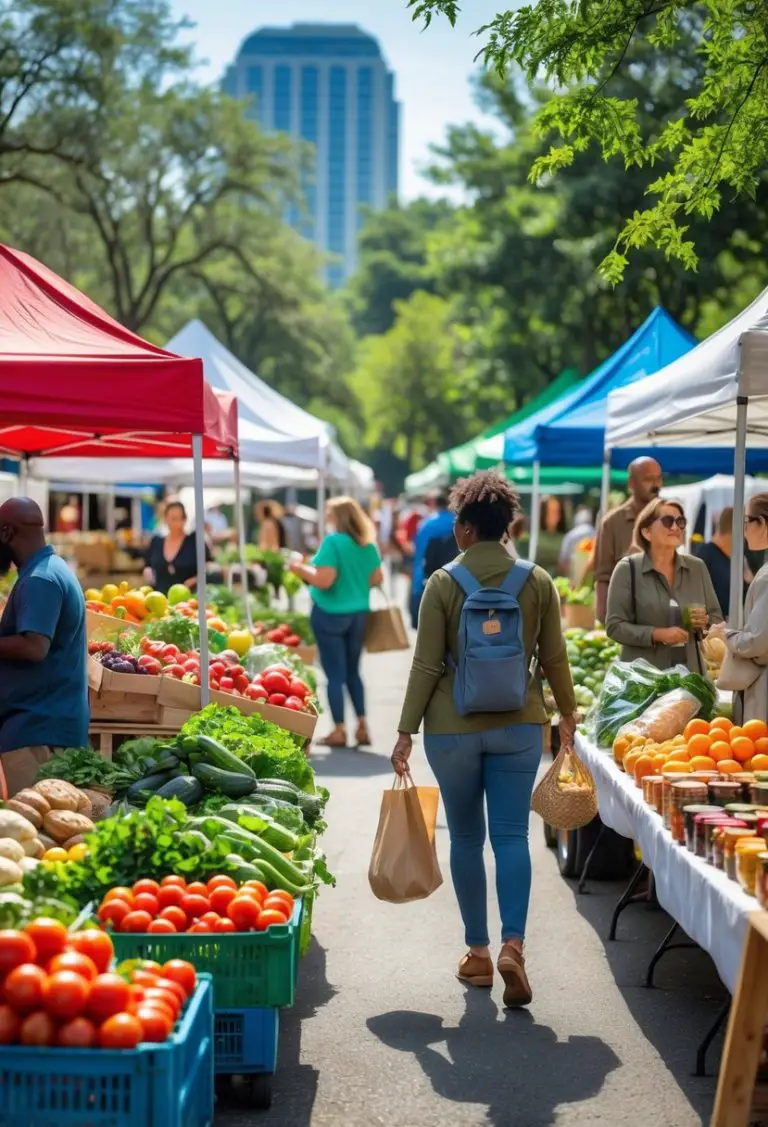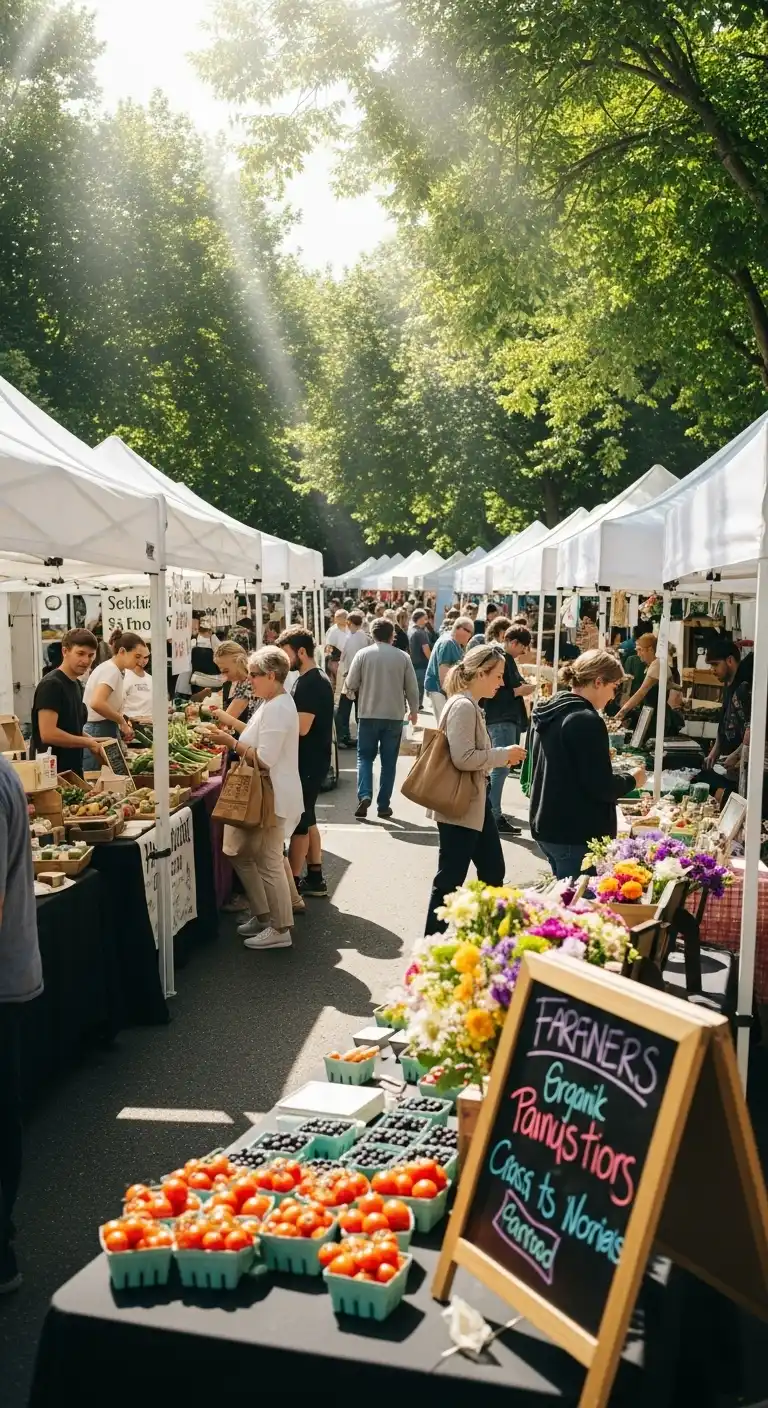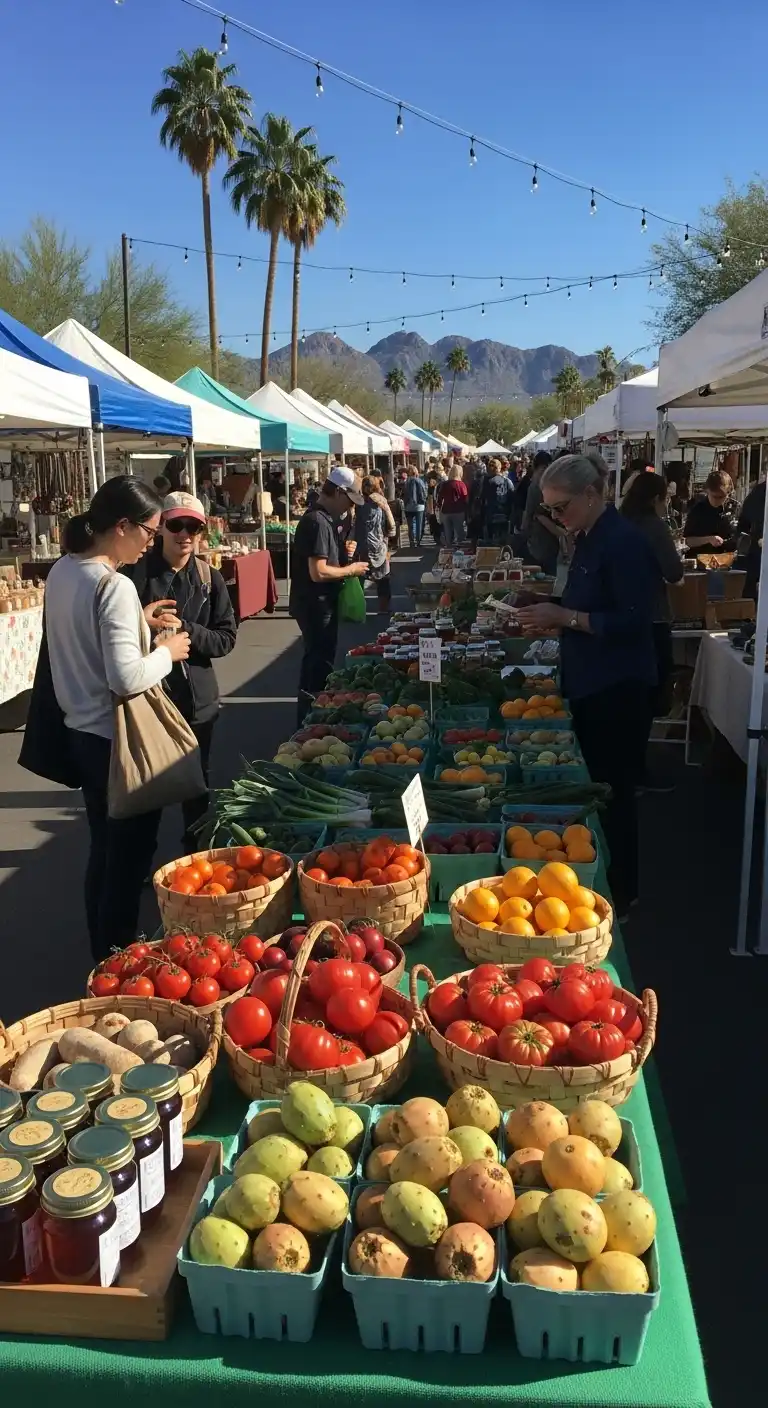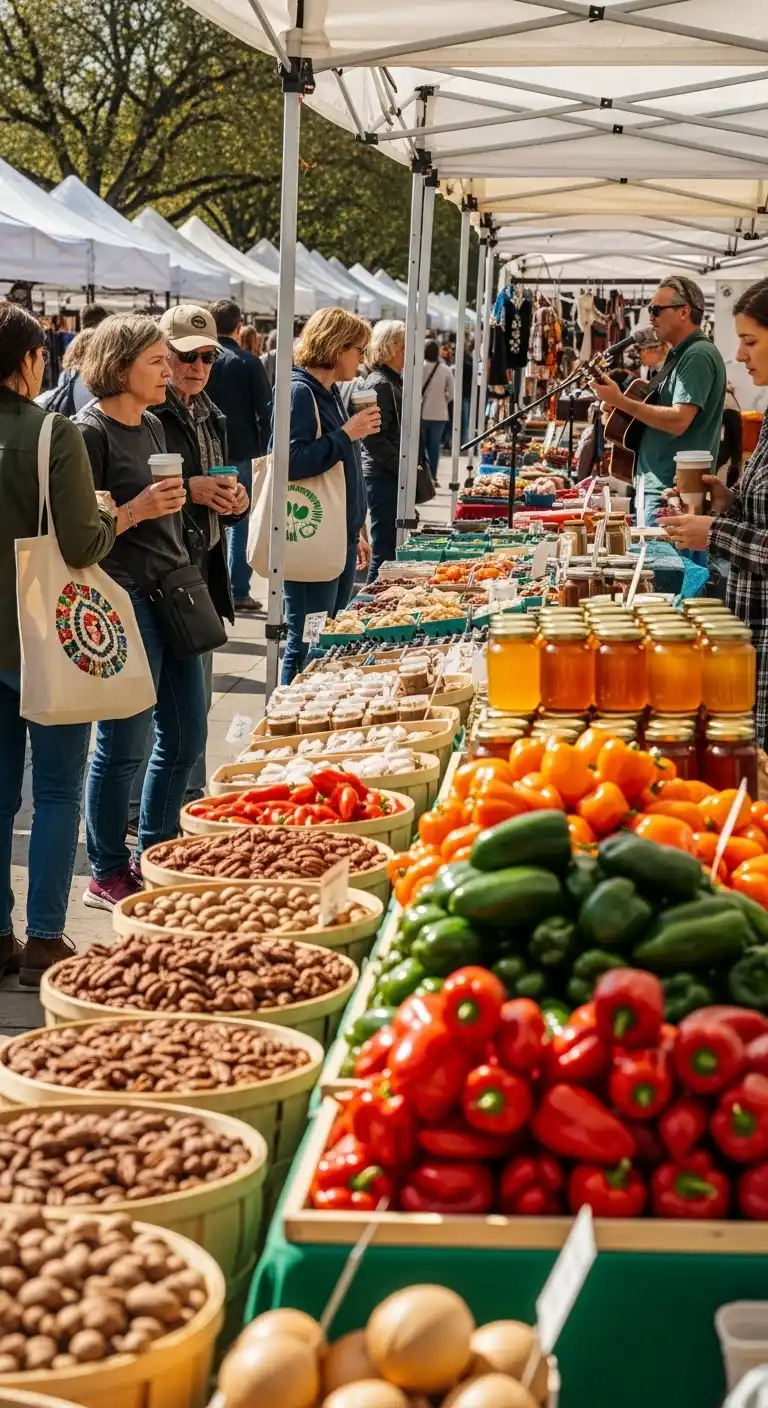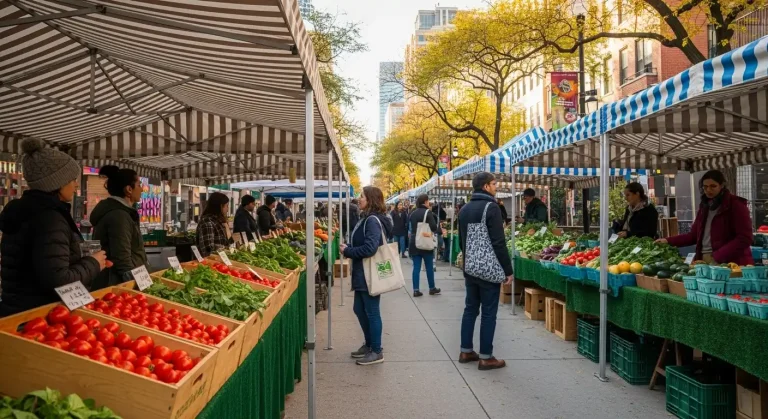Are Farmers Markets Better Than Supermarkets? Exploring the Benefits
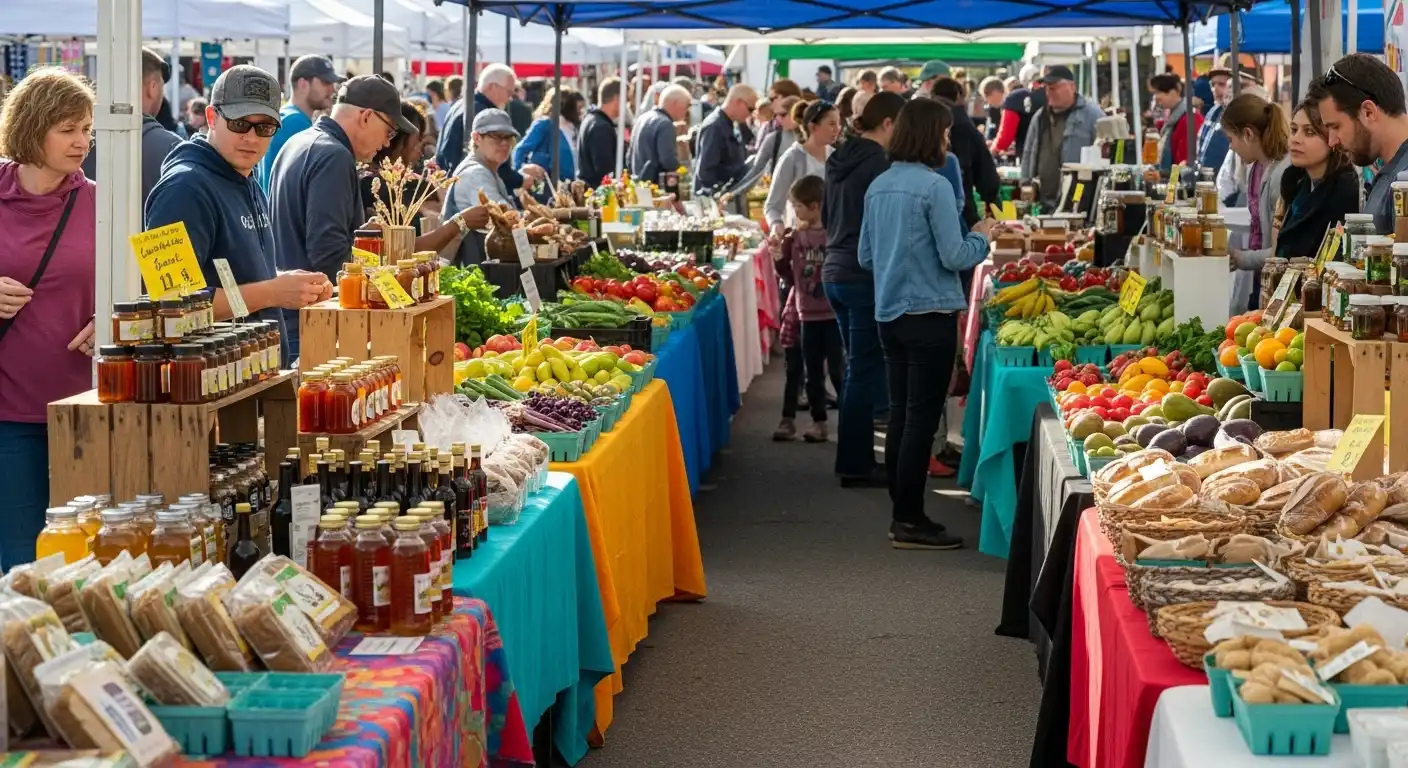
In recent years, more people in the USA are asking the question: are farmers markets better than supermarkets?
With growing awareness about health, sustainability, and supporting local economies, farmers markets have become a popular alternative to traditional grocery stores. But how do these two shopping options really compare?
This blog post will explore the advantages and considerations of shopping at farmers markets versus supermarkets, helping you decide which option fits your lifestyle best.
What Are Farmers Markets?
Farmers markets in USA are local markets where farmers and producers sell fresh, often seasonal, fruits, vegetables, dairy, meats, and artisanal products directly to consumers.
Unlike supermarkets, which source products from large-scale distributors and global supply chains, farmers markets emphasize local agriculture and community connection.
These markets have been part of American culture for centuries, but they have recently experienced a resurgence as consumers seek fresher, healthier, and more sustainable food options.
Farmers markets are often held weekly in neighborhoods, towns, or cities, providing a vibrant outdoor shopping experience.
Freshness and Quality of Produce
One of the most compelling reasons to shop at farmers markets is the freshness and quality of the produce.
Since farmers markets typically feature locally grown fruits and vegetables, the time between harvest and purchase is significantly shorter than supermarket produce, which may travel hundreds or thousands of miles before reaching shelves.
This shorter supply chain means that fruits and vegetables retain more nutrients, flavor, and texture.
Many shoppers report that tomatoes, berries, leafy greens, and other products from farmers markets taste noticeably better than supermarket alternatives.
Additionally, farmers markets often offer seasonal produce, encouraging consumers to eat with the natural growing cycles of their region.
Supporting Local Farmers and Economy
Shopping at farmers markets USA directly supports local farmers and small-scale producers.
Unlike supermarkets that often buy from large agribusinesses, farmers markets provide a platform for independent farmers to sell their goods at fair prices.
This direct-to-consumer model helps keep money circulating within the local economy, fostering community resilience and job creation.
When you buy from a farmers market, you are investing in the sustainability of local agriculture and helping preserve farmland from being sold for development or industrial use.
Environmental Benefits
Farmers markets are often touted as better for the environment compared to supermarkets. The reduced transportation distances for local produce result in lower carbon emissions.
Moreover, many farmers who sell at these markets use sustainable, organic, or regenerative farming practices that minimize chemical inputs, conserve soil health, and promote biodiversity.
By choosing farmers markets, consumers can reduce their carbon footprint and support farming methods that are kinder to the planet. This environmental advantage is a key reason why many people prefer farmers markets over supermarkets.
Health Benefits
Are farmers markets better than supermarkets when it comes to health? Many experts say yes. The fresher, less processed nature of farmers market produce means higher nutrient content and fewer preservatives or additives.
Additionally, farmers markets often provide access to heirloom and organic varieties of fruits and vegetables, which may offer superior nutritional profiles.
The opportunity to speak directly with farmers also allows consumers to inquire about growing practices, pesticide use, and food safety, giving greater transparency than supermarket packaging can provide.
Community and Social Experience
Shopping at farmers markets is more than just purchasing food—it’s a social and cultural event.
Farmers markets foster a sense of community by bringing together farmers, artisans, and consumers in an open-air, vibrant setting.
Many markets feature live music, cooking demonstrations, and educational activities, making shopping a more enjoyable and engaging experience.
This contrasts with the often impersonal and rushed environment of supermarkets.
The opportunity to connect with local farmers and neighbors strengthens community bonds and promotes a shared commitment to healthy living.
Convenience and Variety
While farmers markets offer many benefits, supermarkets often win on convenience and variety.
Supermarkets are open daily, usually offer longer hours, and provide a one-stop shopping experience for everything from fresh produce to household goods, packaged foods, and personal care items.
Farmers markets, on the other hand, are usually open only once or twice a week and focus primarily on fresh, seasonal products.
For consumers who need to shop quickly or want a wide range of brands and products, supermarkets may be more practical.
Cost Considerations
Cost is a common concern when comparing farmers markets and supermarkets. Some people assume that farmers market products are always more expensive.
While it’s true that certain items at farmers markets can be pricier due to smaller-scale production and higher quality, many products are competitively priced, especially when factoring in freshness and nutritional value.
Moreover, farmers markets can offer better deals on seasonal produce and bulk purchases.
Additionally, many farmers markets in the USA accept Supplemental Nutrition Assistance Program (SNAP) benefits and offer matching programs, making fresh local food more accessible to low-income families.
Are Farmers Markets Better Than Supermarkets? The Verdict
So, are farmers markets better than supermarkets? The answer depends on what you value most in your shopping experience.
If you prioritize fresh, nutrient-rich, locally grown food; want to support local farmers and sustainable agriculture; and enjoy a community-oriented shopping atmosphere, farmers markets USA are an excellent choice.
They offer environmental benefits, health advantages, and a connection to the source of your food that supermarkets rarely match.
However, if convenience, product variety, and one-stop shopping are your top priorities, supermarkets remain a practical and necessary option for many households.
Many consumers find that incorporating both farmers markets and supermarkets into their shopping routines offers the best of both worlds.
You might visit a farmers market on weekends to stock up on fresh produce and specialty items, while using supermarkets for pantry staples and household needs.
Tips for Shopping at Farmers Markets USA
- Go early: Arriving early gives you the best selection and allows you to chat with farmers.
- Bring cash: Some vendors may not accept cards, so having cash on hand is helpful.
- Ask questions: Talk to farmers about their growing practices, freshness, and best ways to prepare produce.
- Bring reusable bags: Help reduce waste by bringing your own bags and containers.
- Try something new: Farmers markets often feature unique heirloom varieties and artisanal products you won’t find in supermarkets.
Conclusion
Farmers markets USA offer a compelling alternative to supermarkets by providing fresh, local, and often more nutritious food while supporting local economies and sustainable farming.
While they may not replace supermarkets entirely, they enrich the food shopping experience and promote healthier, more environmentally conscious choices.
Whether you live in a bustling city or a small town, exploring your local farmers market can deepen your connection to the food you eat and the community you live in.
So next time you ask yourself, are farmers markets better than supermarkets? consider what matters most to you—and maybe give your local farmers market a try.

